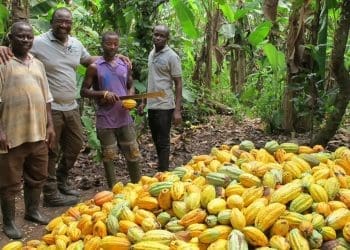The Economic Community of West African States (ECOWAS) has launched the second phase of the West Africa Livestock Marketing Support Programme (PACBAO), which was implemented from 2018 to 2023.
The launch was done as part of a 3-day regional agricultural workshop to consolidate, amplify and sustain the achievements of the initial phase.
Phase Two will run for four years, spanning the period 2024-2028.
According to the ECOWAS Resident Representatives, Mohammad Lawan Gana, Phase One of PACBAO generated In-depth knowledge in terms of lessons learned, innovations and best practice, which have enhanced ECOWAS’ collective learning through the capitalisation products that were developed, culminating in the second phase of the programme.
He noted that livestock farming and the animal products market are important pillars of food security and regional economic integration.
While the Sahelian regions are the main livestock production areas, the coastal countries, like Ghana, are the main consumer basins.
He stated that livestock farming contributes significantly to the GDPs of Sahelian countries, and remains a major provider of jobs, employing up to 50% of the population, particularly young people and women.
The PACBAO is therefore, the concrete manifestation of this political will to develop the livestock sub-sector, in light of the recognition of the importance of this sector to the sub-regional economy.
This has played out in the implementation of the Regional Agricultural Policy, ECOWAP, which includes the livestock sub-sector; covering both the ECOWAS Common External Tariff border policy (CET) and the intra-community trade policy with the ECOWAS Trade Liberalization Scheme (ETLS).
Since its launch in July 2018, PACBAO has sought to find sustainable solutions to the concerns of stakeholders in the livestock sub-sector, particularly in the livestock/red meat value chains.
It has also sought to bridge the gap between regional supply and demand for livestock and meat, the very high cost of transporting livestock from production areas to consumer markets.
Also of concern have been financing constraints for private players and the poor structuring of the livestock/meat sector to ensure the development of an organized and stable market, to attract more private investment.
It is on this basis that the 3-day workshop to share and disseminate the knowledge gained from the first phase, and launch phase 2 of the programme has been organised.
The Minister of Food and Agriculture, Eric Opoku, disclosed that livestock farming accounts for about 14% of Ghana’s agricultural GDP and plays a critical role in ensuring food security, generating income, and providing employment particularly in rural communities.
He said, “Poultry, cattle, sheep, and goats remain the backbone of our livestock economy, with poultry leading in numbers.
Despite the investments made in the agric sector, he stressed that there is a persistent shortfall in domestic meat and milk production, forcing Ghana to import a significant share of its meat and livestock to meet domestic demand.
To address these challenges, Government, he said, has prioritised policies that promote sustainable growth and market development, with a particular focus on poultry and small ruminants.
This is being pursued with the implementation of the ‘Poultry Farmer-to-Table Programme’, the ‘Import-restrictions-to-protect domestic production,’ and the expanded access to finance and affordable feed, Strengthened disease control and surveillance; and Greater youth engagement in livestock enterprises.
The Minister said, “Our goal is to modernise production systems, improve post-harvest management, and leverage public-private investments to unlock the sector’s full potential.”
The Deputy Head of Mission at the Swiss Embassy to Ghana, Janine Walz, said the programme reflects the Embassy’s strong commitment to food security, regional integration, and inclusive growth.
She noted that “livestock is more than an economic sector it provides nutrition, resilience, and income for millions of families.”
Walz however noted that there are still challenges facing the sector, like, limited market access, obstacles to cross-border trade, weak sanitary standards, and insufficient opportunities for youth and women. PACBAO was created to tackle these very issues.
PACBAO, she said, would professionalise actors in the value chain, support innovation and the modernization of markets, strengthen cross-border exchanges, and generate more opportunities for youth and women in agriculture.














